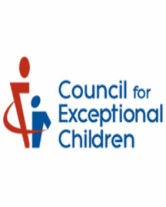Take into Account the Students' Learning Handicaps and How They May Affect Oral Language, Reading, Writing, and Second Language Learning
In an OLE classroom, the teacher would not stop with involving the children in prereading activities to access and develop their background knowledge. The teacher would explain the importance of knowing as much as possible about a text before reading it; demonstrate a strategy such as the survey text method, which students can use to prepare themselves before they read a text; and provide opportunities for the students to practice the strategy.
Follow Developmental Processes in Literacy Acquisition
The OLE Curriculum Guide calls for language arts instruction that acknowledges the importance of developmental phases of literacy acquisition in a number of ways. First, teachers should give students the time they need to develop their knowledge about reading and writing in highly interactive literacy events. Second, student errors in their reading and writing attempts should not automatically be viewed as bad habits. Instead, teachers should examine the errors for evidence of what children can do, as evidence of their progress through developmental phases. Finally, teachers should realize that a curriculum that does not provide the rich language and literacy environment described here is an impoverished curriculum that will promote impoverished learners.
Locate Curriculum in a Meaningful Context Where the Communicative Purpose Is Clear and Authentic
One important way to encourage "meaning making" among children is to engage them in reading and writing whole texts instead of text fragments removed from context. The OLE Curriculum Guide recommends that, in reading lessons, students be encouraged to interact with whole books, poems, and other forms of written language as a way to facilitate meaning making. For writing, teachers should use the Writing Workshop approach described by Atwell. Here, students have control over intentions, topic, and audience as they write and publish their own books. Classmates should meet frequently for peer conferences on their pieces, simultaneously stimulating their need to be clear and interesting writers and providing alternative oral language opportunities.
Connect Curriculum with the Students' Personal Experiences
Many students show greater progress or increased investment when reading and writing tasks give them the opportunity to interject their personal experiences. The OLE Curriculum Guide gives specific suggestions on how to connect students' personal topics to the language arts curriculum by using the Writing Workshop and the ETR methods, for example.
Incorporate Children's Literature into Reading, Writing, and ESL Lessons
Using actual examples of literature can extend students' knowledge about print (including the more sophisticated aspects of this knowledge, such as text structure or style), increase areas of their background knowledge, and facilitate the construction of meaning through whole texts. Literature, even more than expository writing, is decontextualized; that is, its clues to meaning are more implicit than explicit. Second language learners working through literary works must negotiate the meaning, not only between themselves and the text, but also with others. These negotiating moves (e.g., checks for understanding, requests for clarification) have been linked to better English-language gains.
Involve Parents as Active Partners in the Instruction of Their Children
The OLE Curriculum Guide details various ways to promote equitable parent-school partnerships. One is Project TOT (Training of Trainers), in which parents from language minority groups who are knowledgeable about the inner workings of schools join with families who do not use the available special education services. The families participate in small-group seminars to acquire information and skills related to obtaining those services, as well as forming ongoing support groups.
ERIC EC Digest #E499, Author: Nadine T. Ruiz, 1991















